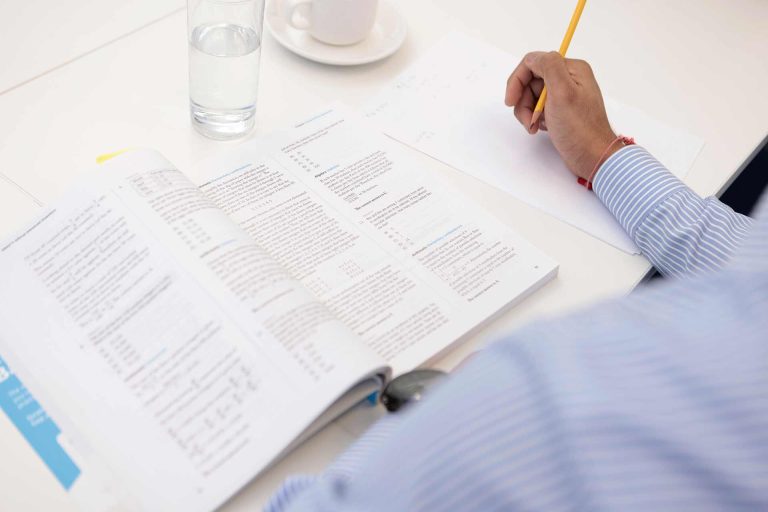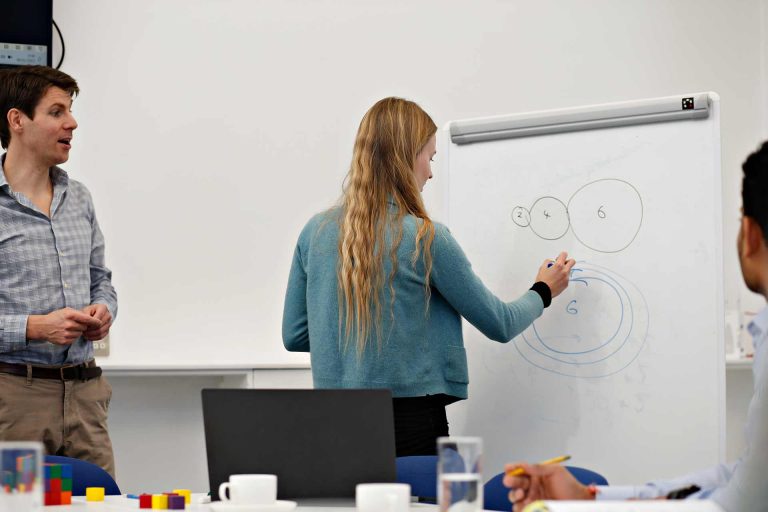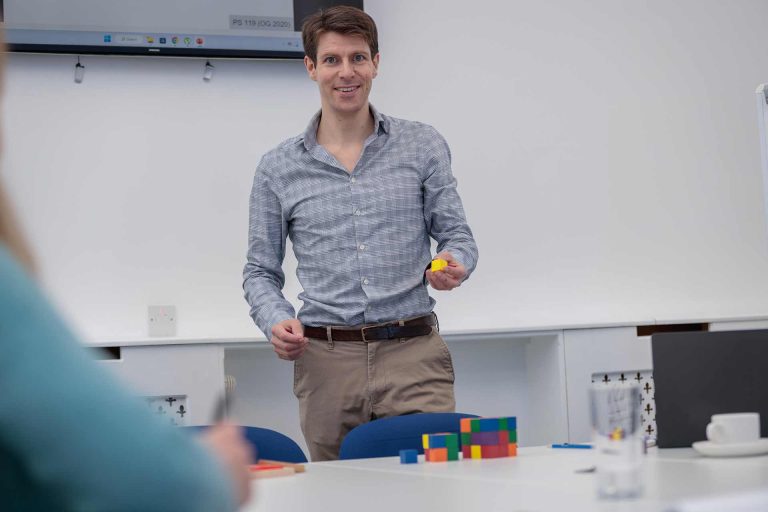- Make your practice tests realistic. These are important events for you to check your progress and experience the stress and fatigue of doing a full exam. Make them count! Find a quiet place, switch off your phone and other distractions, observe the timer (don’t give in to the temptation to pause the test), and allow yourself to feel nervous. Keep hold of your scratch working so that you can check later where you made mistakes (see ‘How to review a GMAT practice test’). Don’t take too many practice tests: after all, the experience should be exhausting and you want to save energy for productive study. Once a month is usually about the right frequency for most students, or perhaps once a week if you’re studying intensively.
- Practice tests are important, but the real learning comes when you explore GMAT problems. After all, if you can’t figure out why you made a mistake, you’re likely to make a similar one in the future. The calm mindset that asks ‘Hmm, that’s interesting. How could I do it differently?’ is one that good learners possess. Check out ‘GMAT study, fast and slow’ for more about this.
- Consequently, quality counts for more than quantity when it comes to preparing for the GMAT. I’ve met a lot of students who have ‘done’ hundreds of problems, but haven’t learned much from them. Of course, getting to know the test well is part of good preparation, but don’t be the student who rushes through material and simply builds up a bunch of bad habits.
- Get some rest! As much as our culture seems to lionise those who work 100 hour weeks and survive on 4 hours of sleep a night, that kind of superhero approach doesn’t give effective GMAT results. When you’re tired and stressed, your brain simply doesn’t learn effectively, especially for the kind of subtle and challenging problems that the GMAT will throw at you. I’ve often seen that an extra hour of sleep makes more different to a student’s performance than an extra hour of study.
- Getting enough sleep may be easier when you realise that a little and often is a good way to study. If you’re working a busy full-time job, then 30 minutes of study morning an evening may well be enough to make good progress. A few problems in your lunchbreak, homemade GMAT flashcards in your pocket, and using GMAT app on your phone when commuting are all simple ways to fit your study into a busy daily schedule.
- Studying as an adult (if you haven’t already realised) is way harder than studying when you were a teenager and didn’t have so many other things going on in your life. It’s very easy for your GMAT studies to be pushed down the agenda. The solution? Make a plan. Book out time in your calendar for regular study sessions, block off half a day for a practice test, and make a to-do list of tasks for each week.
- Learning is a circular process. We try things out, get things wrong, analyse our mistakes, change our strategy and…try things out again. The step that most students miss out is that of redoing old problems. Leave enough time so that you’ve half-forgotten what you did before (perhaps 2-4 weeks?), and then try out the same problems again. It’s humbling to see that we often make some of the same mistakes.
- One of the unexpected features of adaptive tests is that easier problems count for more. If you don’t get most of the easy problems correct, then you won’t even see the medium problems. Consequently, when you’re studying, be sure that you’re working on getting consistent at lower-level problems. When reviewing a practice test, it’s easy to get distracted by the 2 or 3 really tough problems that you got wrong. Your time will probably be better spent finding ways to avoid those so-called ‘silly errors’.
- There are lots of books, apps, websites, and courses available for the GMAT, so choose your resources carefully. When it comes to practice tests, then the official ones at mba.com are definitely the best. The Official Guide (despite its shortcomings) is also a must-have resource (check out ‘How to use the Official Guide’). I’m not against using non-GMAT resources. For example, Khan Academy has some really good material for helping with basic Algebra skills, such as here: https://www.youtube.com/watch?v=iI_2Piwn_og
- Get some help. If you understand that the GMAT is an exam of skills, then it can be hard to see where you’re going wrong. Think of other skills – learning to drive, learning a musical instrument, or learning a language – these are things that are hard to master on your own. Organising study sessions with a friend is one low-cost option. More information about coaching sessions with me is available here.








